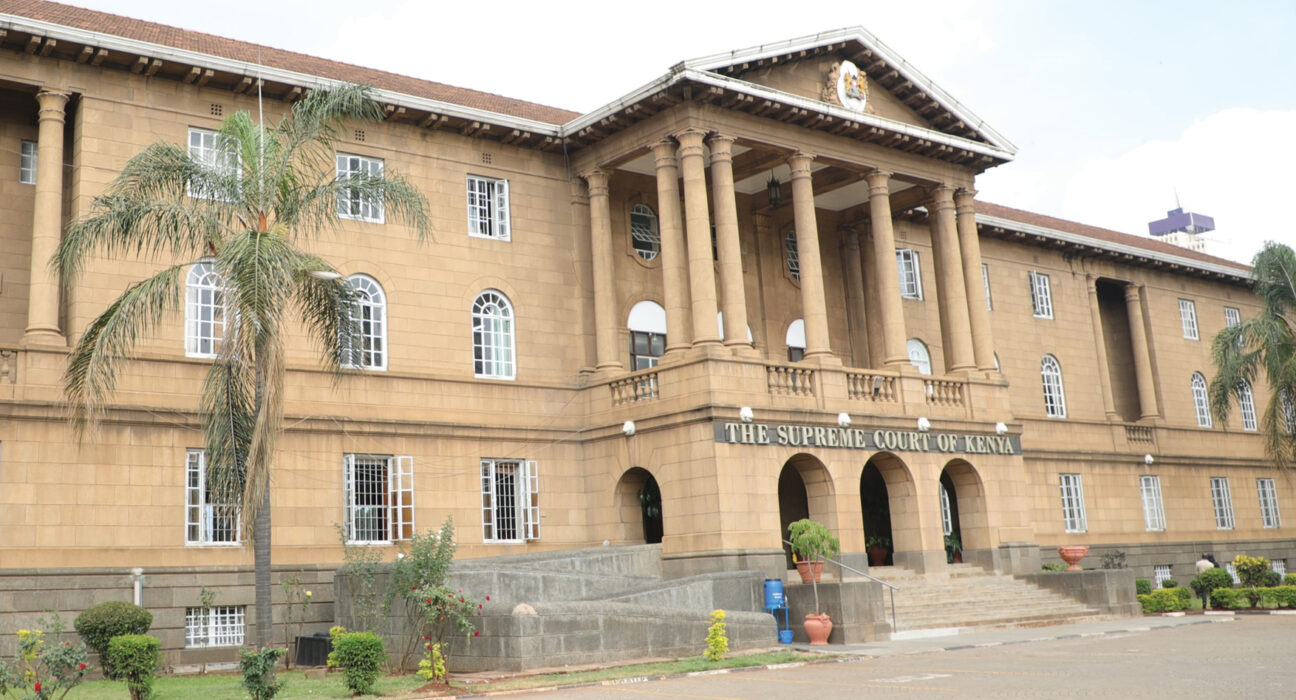Navigating the Kenyan legal system can seem overwhelming, but understanding how to file a case in court is essential whether you are dealing with a criminal matter or a civil dispute. In this comprehensive guide, we break down the process into clear, actionable steps. Whether you’re a business professional, an individual looking for justice, or someone interested in how the system works, this guide will provide you with the insights and practical advice you need.
This article will cover:
- An overview of Kenya’s court system and filing fees
- A detailed step-by-step guide for filing a criminal case
- A detailed step-by-step guide for filing a civil case
- Key considerations, common pitfalls, and tips for success
- A compelling call to action for those seeking legal assistance
Keywords: file a case in court in Kenya, how to file criminal case Kenya, civil case filing Kenya, Kenyan court process, legal guide Kenya, step-by-step court filing Kenya
Understanding the Kenyan Court System
Before diving into the process, it’s important to understand the basic structure of Kenya’s court system. Kenya’s judiciary is divided into several levels:
- Magistrates’ Courts: Handle less complex criminal and civil cases.
- High Court: Deals with serious criminal and civil matters, appeals from lower courts, and constitutional issues.
- Court of Appeal: Hears appeals from the High Court.
- Supreme Court: The highest court in Kenya, which hears final appeals on constitutional matters.
Each court has its own procedures and filing fees. For example:
- Filing a non-criminal application at the High Court costs Kshs 1,500.
- Filing applications on criminal matters costs Kshs 500 at the High Court and Kshs 485 at the lower courts.
Understanding these differences is crucial when planning your case, as the court level will determine both the process and costs involved.
How to File a Criminal Case in Court
When a crime is committed, the criminal justice process kicks into gear. Filing a criminal case generally begins with involving the police, who then forward the matter to the prosecution. Here’s a detailed breakdown of the steps:
Step 1: Report to the Police Station
- Immediate Reporting: The very first step is to report the incident to your nearest police station. This is where the process officially starts.
- Obtain an OB Number: Once you report the crime, the officer will record your complaint in the Occurrence Book (OB). This number is essential as it serves as your reference for further proceedings.
Step 2: Recording of the Complaint
- Occurrence Book Entry: Your complaint is documented in the OB. This record details the nature of the incident and the parties involved.
- Reference Number: You will be given a reference number, which is important for tracking the progress of the case.
Step 3: Statement and Evidence Collection
- Witness Statements: The police may record statements from you and any witnesses. Make sure you provide clear and accurate details.
- Drafting the Charge: Based on the information gathered, the police will draft a charge. This document outlines the alleged crime.
Step 4: Arrest and Detention
- Satisfaction of Evidence: If the police are satisfied that a crime has been committed, they will proceed with the arrest of the accused.
- Detention or Bond: Depending on the circumstances and the evidence, the accused may be detained or released on a reasonable bond pending further investigation.
Step 5: Forwarding to the Prosecution
- File Submission: The police forward the complete file, along with all evidence and statements, to the prosecution counsel.
- Decision to Charge: The prosecution counsel reviews the evidence and decides whether to file the matter in court. If they believe there is sufficient evidence, the case is officially filed, and proceedings begin.
How to File a Civil Case in Court
Filing a civil case, on the other hand, involves disputes between private parties, such as contractual disputes, property issues, or personal injury claims. The process is more procedural, and here’s how you can navigate it:
Step 1: Understand Your Legal Position
- Identify the Legal Basis: Determine the specific law or legal principle that supports your claim. This is the foundation of your case.
- Assess the Facts: Carefully review all the facts of your case and gather any evidence that supports your claim.
Step 2: Consult an Advocate
- Engage a Licensed Lawyer: It is crucial to consult an advocate—a lawyer who is admitted to the roll of advocates and licensed to practice in Kenya. They will provide expert advice on the strength of your case.
- Legal Strategy: Your advocate will help you understand your options and develop a legal strategy tailored to your situation.
Step 3: Prepare Your Complaint
- Drafting the Complaint: Your complaint must be reduced to writing in the form of a plaint, originating summons, or petition. This document outlines your claim, the facts, and the relief you are seeking.
- Supporting Affidavit: Accompany your written complaint with a signed supporting affidavit. This affidavit provides a sworn statement of the facts that form the basis of your case.
Step 4: Filing the Case
- Court Registry: Submit your drafted complaint and affidavit to the court registry closest to your location. The registry staff will check that all required documents are included.
- Filing Fees: Pay the necessary filing fee. Remember, filing non-criminal applications at the High Court costs Kshs 1,500.
- Obtain a Case Number: Once your documents are filed, you will receive a case number. This number will be used to track the progress of your case through the judicial system.
Step 5: Serving the Defendant
- Notifying the Opposing Party: After filing your case, the court will issue a summons to the defendant, informing them of the case and instructing them to respond.
- Proof of Service: It is essential to ensure that the summons is properly served and that you have proof of service, as this is a critical part of the legal process.
Additional Key Considerations
Filing Fees and Costs
- Criminal Cases: Kshs 500 at the High Court, Kshs 485 at lower courts.
- Civil Cases: Kshs 1,500 at the High Court.
- Other Expenses: Be aware that additional costs may be incurred for legal representation, document preparation, and other administrative fees.
The Importance of Legal Representation
- Expert Advice: Navigating the court system can be complex. An experienced advocate can provide clarity and help ensure that your case is properly presented.
- Procedural Guidance: From filing your complaint to serving the defendant, legal representation ensures that all procedural steps are correctly followed.
Timelines and Expectations
- Criminal Cases: The timeline may vary depending on the complexity of the case and the efficiency of the police and prosecution.
- Civil Cases: Civil litigation can be lengthy. Factors such as court schedules, the availability of evidence, and legal motions can affect the duration of the case.
- Patience is Key: Regardless of the type of case, the judicial process requires patience. It is important to maintain realistic expectations regarding timelines.
Common Pitfalls and How to Avoid Them
- Incomplete Documentation: Ensure that all forms, affidavits, and supporting documents are complete and error-free.
- Failure to Serve Properly: Not serving the defendant correctly can result in delays or dismissal of your case.
- Underestimating Legal Fees: While filing fees are fixed, legal representation and other associated costs can add up. Budget accordingly and discuss fee structures with your advocate.
- Missed Deadlines: Courts have strict deadlines. Missing any deadlines for filing documents or responses can adversely affect your case.
Digital Tools and Resources
- Online Court Services: The Kenyan Judiciary has been modernizing, with some courts offering online case tracking and filing services. Keep an eye on the official court websites for updates.
- Legal Research: Utilize legal databases and online resources to research case law and precedents that support your claim.
- Consultation Platforms: Several law firms in Kenya offer initial online consultations. This can be a convenient way to understand your legal standing before proceeding.
Frequently Asked Questions (FAQs)
Q1: How long does it take to file a case in Kenya?
A: The time it takes can vary. Criminal cases can progress relatively quickly if evidence is clear, whereas civil cases may take several months to years due to their complexity and court schedules.
Q2: Do I need a lawyer to file a case in Kenya?
A: While it is possible to file a case without a lawyer, especially for simple matters, consulting an advocate is highly recommended. Lawyers ensure that your documents are correctly drafted and that all procedural requirements are met.
Q3: What are the filing fees for court cases?
A: Filing fees differ depending on the type of case and the court. For non-criminal matters at the High Court, the fee is typically Kshs 1,500. Criminal cases cost Kshs 500 at the High Court and Kshs 485 at the lower courts.
Q4: What should I do if my case is dismissed?
A: If your case is dismissed, you may have the option to appeal the decision. It is important to consult your lawyer about the reasons for dismissal and your next steps.
Q5: Can I file a case online?
A: Some courts in Kenya are moving towards digitizing the filing process. However, it is best to check with your local court registry or consult your advocate for the most current procedures.
Real-Life Examples and Case Studies
To further illustrate the process, here are a couple of examples:
Example 1: Filing a Criminal Case
John, a small business owner in Nairobi, was the victim of a burglary. He immediately reported the incident to his local police station and was issued an OB number. After witness statements were collected and a charge was drafted, the police arrested the suspect. The case file was then forwarded to the prosecution counsel, who filed the case in court. This swift action ensured that justice was served and helped deter future crimes in the community.
Example 2: Filing a Civil Case
Mary, a property owner in Mombasa, discovered that her neighbor was illegally encroaching on her land. After consulting with an advocate, she drafted a plaint with a supporting affidavit detailing the dispute. She filed the case at the local High Court, paid the filing fee, and obtained a case number. The court then issued a summons to the neighbor, initiating the legal process to resolve the dispute.
These examples highlight the importance of acting promptly and following proper procedures to ensure that your case is heard in court.
Navigating the court system in Kenya doesn’t have to be an insurmountable task. By understanding the processes for filing criminal and civil cases, preparing your documents carefully, and seeking the right legal counsel, you can effectively present your case and seek the justice you deserve.
If you’re ready to take the next step or need personalized legal advice, don’t hesitate to consult with a qualified advocate. Whether you’re dealing with a criminal case or a civil dispute, our team of legal experts is here to help guide you through every stage of the process.





